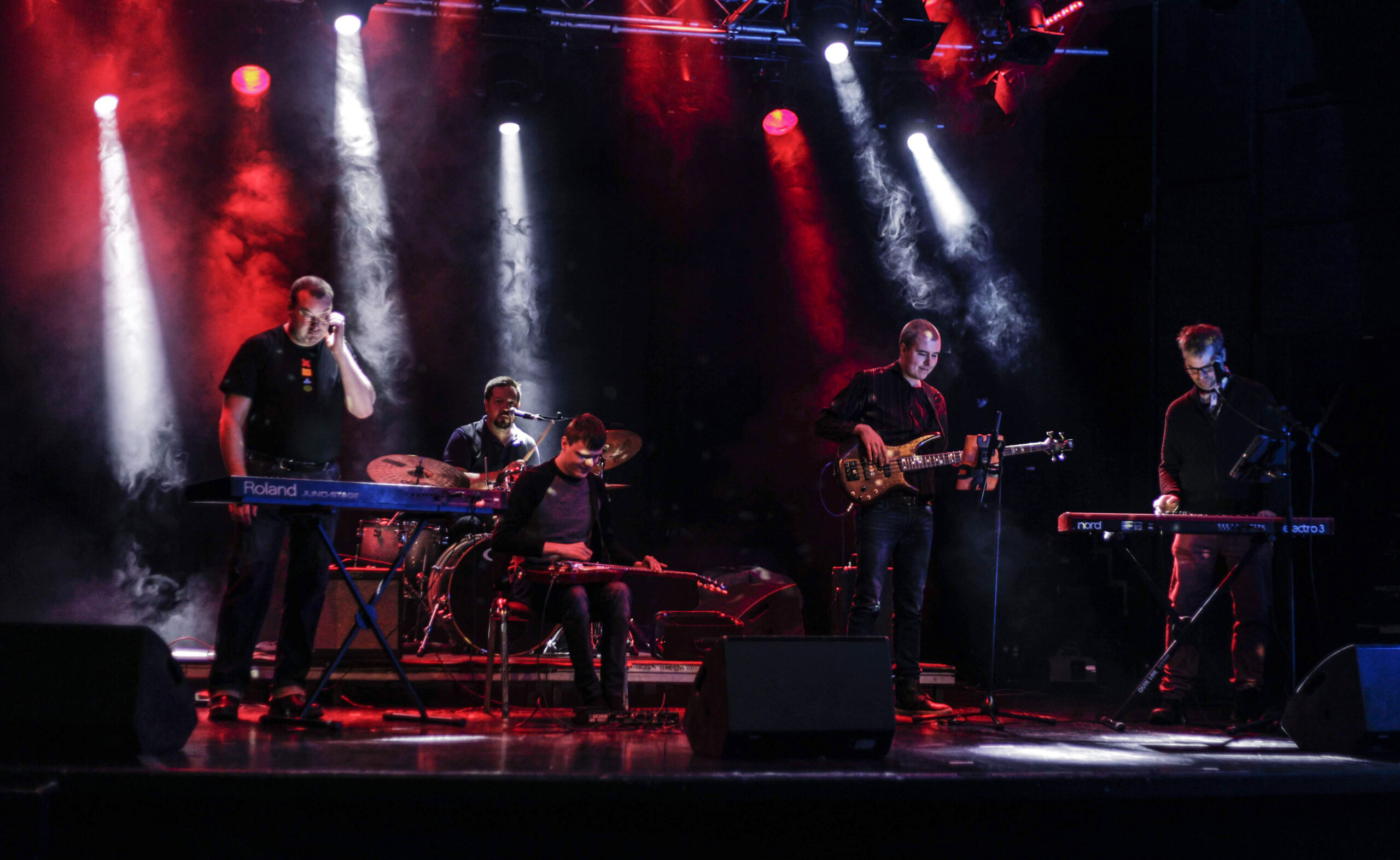Image: Resonaarigroup, disabled musicians employed by Resonaari, in performance. Used with permission
If you listen to people who use a service, they will tell you what works and what doesn’t. Paying attention is often the difference between changing lives for the better and falling short of the mark.
It’s not just about providing the best service possible – although that would be reason enough.
But when an approach really works it can do a lot to kick start a cultural shift, changing attitudes, reducing stigma and breaking down barriers.
I’ve spoken to two organisations in the last few days, both of which are shaping approaches to inclusion across Finland. They show what real person centred working can achieve.
Let me introduce you to one of them.
Resonaari is a music school with a difference. Anyone familiar with the excellent work done by our own Drake Music Scotland may already have come across them.
Resonaari – the name has connotations both of “resonate” and “resound” – was founded in 1995, almost by accident.
“We began as a pilot project to make music possible for all to participate in, especially people excluded from traditional approaches,” says Markku Kaikkonen, director and co-founder.
Very quickly, they found people with learning disabilities were telling them more was needed.
“We had to hire teachers to be able to teach the number of people who were coming,” Markku says. “Suddenly we realised, we have a music school.”
Finland has a strong network of music schools, but their emphasis on following a curriculum did not suit Resonaari’s students. Markku and co-worker Kaarlo Uusitalo decided not to join the official system. In going their own way, they have been able to develop teaching methods and approaches that are gradually being adopted across Finland.
The first thing you notice is that the school is open to all. There are no age limits – the youngest pupil is 12, the oldest 84, and students remain at the school for as long as they wish. No diagnosis is required – potential students are simply asked “Is there anything it would be good for us to know?”. Markku says any difficulties generally become apparent quite quickly. Of the 300 pupils, the overwhelming majority have physical or learning disabilities, are neurodiverse, or have cognitive or processing issues. It isn’t necessary to own an instrument, or to have previous musical experience.
Most students attend one or two times per week and are connected into one of the school’s bands or groups so they experience belonging to a community of musicians and sharing what they are learning with others.
And this happens quickly. Instead of traditional notation, Markku and Kaarlo developed a set of symbols using shapes and colours, making it easy for even a complete beginner to play with others. I tried this out with Kaarlo and believe me, it really works – within a few minutes of picking up a bass guitar for the first time I was performing Let It Be accompanied by keyboard and drums!
Performance and collaboration is key: Resonaari believes music is for sharing.
The second element of their work is arguably just as important. They have created an “expert centre” offering consultancy and training, and act as an influencer to getting everyone involved in music. Their services are available to other music schools, mainstream schools, and any interested organisations. Markku is well aware that only a relative handful of students can come to Resonaari itself, but their work to change approaches across Finland means other organisations are becoming more inclusive – a process he describes as “democracy in learning”.
Students themselves often lead workshops for professionals.
“Teachers are a little surprised in the beginning, it’s like: who’s teaching me?” says Markku. “But they quickly understand and change their attitudes. We find this approach very positive because it’s a really interesting way of thinking for them and often not something they have encountered before.”
But as I said at the beginning, what we ourselves think of the services we provide is only part of the story – and the least important part at that.
One family whose son was at Resonaari was clear about what it meant to them.
“It was a complete gamechanger. It gave him skills, confidence. All of these he can use in life in general. I can’t praise it enough. it’s an amazing place.”
So what are my reflections on Resonaari? Yes, they have funding, premises, stability. It’s a success story. But it wasn’t like that in the beginning. At the start it was simply a burning conviction that everyone, no matter what their situation, should be able to take part in something that adds value to life for so many of us.
It was a willingness to listen to what people were saying and adapt approaches so their needs were met.
It was recognising the value and potential in every individual and focusing on what they can do, not what they can’t.
It was being prepared to make a start, think out of the box, and see where it goes.
We can all be a bit more Resonaari if we try.

Wee travelogue – I was in the city of Tampere at the weekend, known as “Finland’s Manchester” apparently, and more or less founded in the 1800s by James Finlayson from Penicuik. He established the cotton industry that brought the region much of its prosperity. Who knew?
All opinions are my own and not those of any other organisation. However I am grateful to my colleagues at ARC Scotland for making this visit possible.

If you have a burning question you’d like to ask about Finland, feel free to leave a comment below and I’ll see if I can find the answer for you!


Leave a Reply